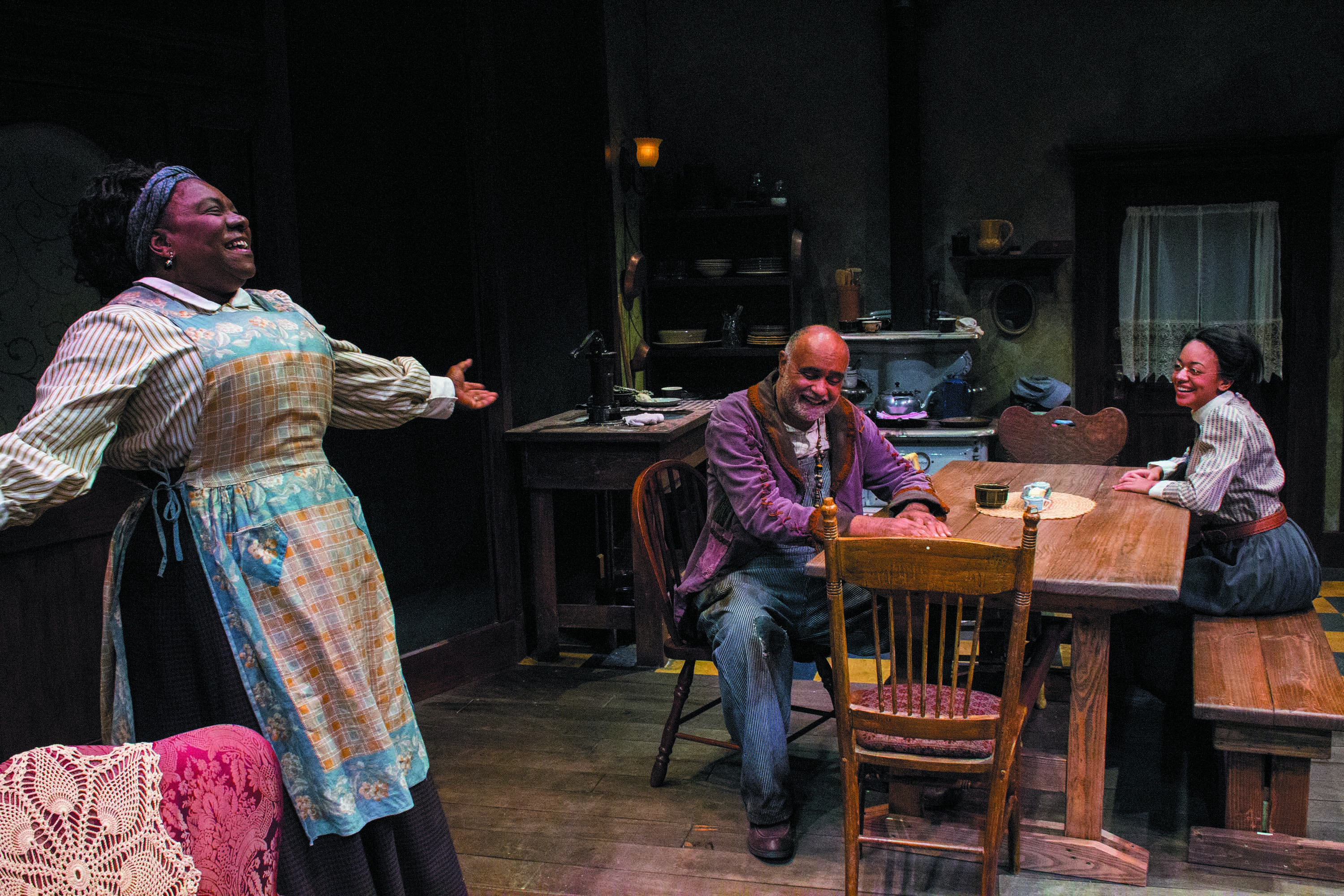The moment Calvin M. Thompson fell to the ground in a fit of convulsions, I knew that “Jo Turner’s Come and Gone” was far more than a simple lighthearted production. Patrons sat on the edge of their seats as they hung to every word in the tenth and final installment of the August Wilson Century Cycles Series.
Set in 1911 Pittsburgh, “Jo Turner’s Come and Gone” by August Wilson follows the lives of Seth and Bertha Holly, played by Kim Sullivan and Fanni Green respectively. They are an African-American couple who run a boarding house.
From the moment Sullivan and Green appear on stage their chemistry is electrifying. Their witty conversation and endearing glances paired with Seth’s penchant for stolen kisses paint the loving nature of their relationship.
The residents of the Holly boardinghouse come from all walks of life. They range from 25-year-old blue’s playing Jeremy Furlow, played by Satchel André, to 60-year-old “voodoo” wielding Bynum Walker, played by Mujahid Abdul-Rashid, and the Loomis family who are in a desperate search for their missing mother and wife. Each resident is on a different path in life but together they seem to find solidarity in one another through conversation and music.
The play is threaded with little moments of hope where characters are encouraged to become their own person, even if that means leaving behind everything they once knew.
Calvin M. Thompson is enchanting in his portrayal of Herald Loomis. From the moment he walks on stage his presence is marked by a darkness and heartbreak that radiates into the viewer’s heart. Thompson manages to balance his cold and hard manner with his sensitive and overpowering love for his daughter, Zonia Loomis, played by Bianca Rivera-Irions.
The stories portrayed throughout the play convey that a person’s journey is not a straight line from point A to point B, but rather one filled with complex moments that shape who a person is.
Herald Loomis must find a way to exist in the world where his heart has been ripped out and his song has been stolen. Jeremy Furlow, originally a southern man, must come to terms with the prejudices that follow young black men in society regardless of location. Bynum Walker lives each day in search of a mysterious man that was promised to show him the meaning of life.
Wilson’s masterpiece is the perfect mix of drama and comedy. The young and talented Elijah Dixon who played the spunky Reuben Mercer acted as the comedic relief to Herald Loomis’ more passionate and dark moments throughout the play.
The noise in the theater jumped from joyful laughter to heart-wrenching gasps. Each pivotal moment brought the spectators one step closer to tears. By the final scene, the ambiance of the theater was one of enlightenment and hope for the future.
“Jo Turner” tackles the empowering reality that finding yourself in the world and being comfortable with who you are is essential before you can ever find love in someone else.
The character Mattie Campbell, played by Cindy De La Cruz, begins the play as a woman who uses her relationships with men to justify her identity. This is juxtaposed in the play by the character Molly Cunningham, played by Jemier Jenkins, who is a woman certain of who she is and what she wants from the world, regardless of who she may hurt in the process. The two women compete for the affection of the absent-minded Jeremy leading to heartbreak and sorrow.
During the final scene of the play, Bertha realizes Mattie’s struggle with the loss of her boyfriend and clues her in on the wonders of the world.
“[All] you need in the world is love and laughter.” Bertha said, “That’s all anybody needs. To have love in one hand and laughter in the other.”
Photo courtesy of American Stage
Rating: 4.5 out of 5
The Crow’s Nest rates plays between one and five stars, with five stars being the highest possible score.



